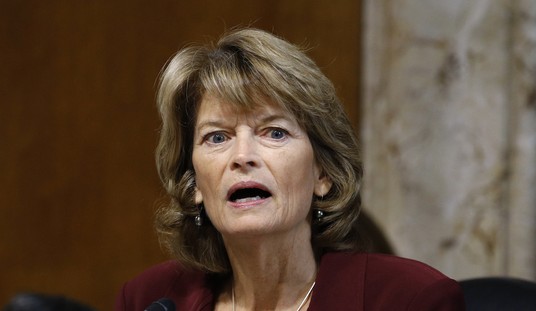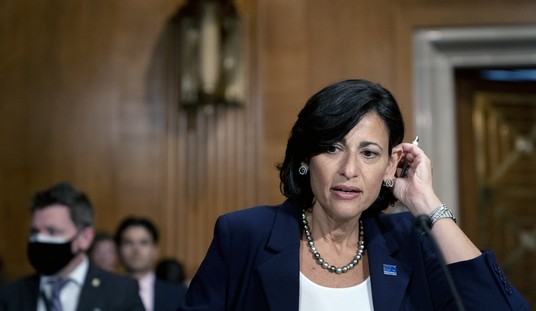Just what are the risks for blood clots in the COVID-19 pandemic? Real-world data on the Johnson & Johnson vaccine puts the risk at one in a million, literally. The six cases out of 6.8 million inoculations has the US “pausing” the use of the single-shot vaccine, but a new study from Oxford demonstrates similar risk from the other vaccines as well.
None of them come close to the risk from the disease they’re intended to stop, however:
A study by researchers at Oxford University in England suggests the risks of experiencing dangerous, rare blood clots in the brain are far higher in those who catch the coronavirus than in those who get either the AstraZeneca vaccine, or the vaccines made by Pfizer and Moderna in the U.S. The research shows that the number of people who experience clots after getting the vaccines made by the American pharmaceutical giants appears very similar to the number who get the rare condition after a shot of the AstraZeneca drug, which was developed in conjunction with Oxford’s vaccine institute.
A key finding of the research, revealed Thursday as a “pre-print” study which has yet to be reviewed by other scientists, was that the risk of experiencing a blood clot in the brain was about 95 times higher for people who contract COVID-19 than in the general population. …
The data showed that about 4 in every 1 million people who get the American-made vaccines experience cerebral venous thrombosis (CVT), or blood clots in the brain. With the AstraZeneca vaccine, which works in a different way and is similar to the Johnson & Johnson shot, the research showed an incidence rate of about 5 in every 1 million.
If that’s the case, then the J&J shot is actually the lowest risk for CVT among the vaccines. The risk for those who get an acute COVID-19 infection, in contrast, is 39 in a million. Oxford concludes that the risk from the virus is actually ten times greater than that of the mRNA vaccines and eight times greater than the AstraZeneca vaccine. And if the numbers hold up on J&J, which Oxford didn’t include in this comparison, the blood-clot risk from COVID-19 is thirty-nine times higher.
The “data are still accruing,” Oxford cautions, and the research has not yet been peer-reviewed. Keep in mind that Oxford helped develop the AstraZeneca vaccine, too, although it didn’t retain any proprietary interest in the formula. If this holds up, though, the CDC and FDA may face questions as to why they weren’t kept abreast of these real-world reports and put them into perspective before impulsively acting on six cases out of nearly seven million J&J inoculations. Even in these rare instances of blood clotting, the disease appears to be far worse than the cures.
So will the CDC rescind its pause? Not today:
A Centers for Disease Control and Prevention advisory committee did not vote Wednesday on whether to extend the nation’s pause on Johnson & Johnson’s COVID-19 vaccine, after experts on the panel argued there was still insufficient data to make final recommendations in light of the serious, rare blood clotting events potentially linked to the shots. …
“To be very frank, I do not want to vote on this issue today,” Dr. Beth Bell, a member of the panel and a former top CDC infectious diseases official, told the committee.
“I just don’t feel that was enough information to make an evidence-based decision. We won’t have all the information, but I think there are some things that we can gather relatively quickly, which all have to do with the benefit risk balance,” added Dr. Bell.
Maybe they should give Oxford a call.








Join the conversation as a VIP Member